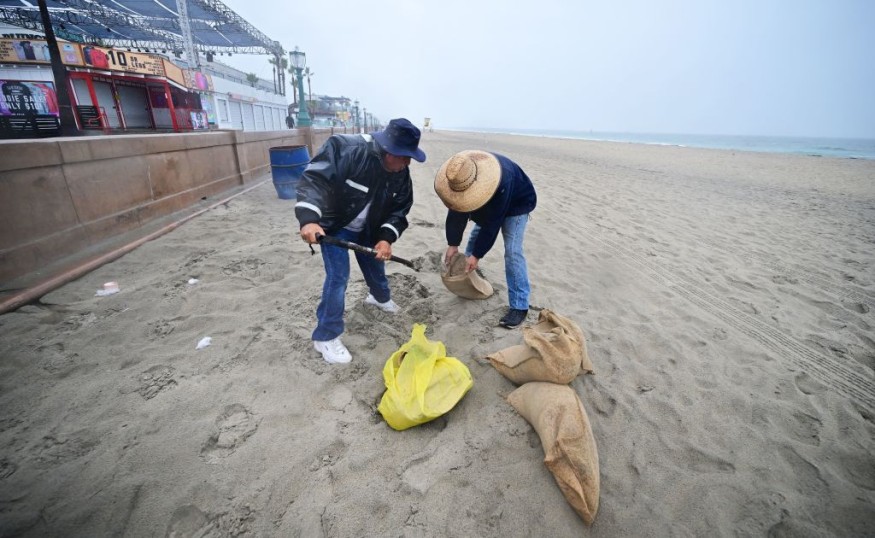The 2024 hurricane season is near in the U.S., and homeowners should prepare for challenging weather conditions and storms.
Intense hurricanes or severe weather can occur, causing significant damage to lives and properties. Strong winds, flooding, mudslides, flash floods, and landslides always pack it.
Staying aware of the latest weather information can mitigate risks of deadly weather outlooks. Additionally, essential precautions can keep people safe from extreme weather events.
Homeowners should teach their children about hurricane preparedness and plans to avoid devastating storms. Preparedness can reduce the chances of injuries or deaths.
1. Staying informed about the latest forecasts

Staying updated on weather conditions can caution homeowners of potential storms or hurricanes. People can listen to local announcements or weather forecasts.
In a recent National Weather Service (NWS) report, understanding the forecasts can save people from disasters. The advisory reminds Americans of the weather alerts, including watches or warnings.
If there is a flooding watch or any advisories, homeowners should check for potential storm impacts, category, or size. Checking for the storm wind speeds and rainfall amounts is suggested.
2. Always Store Essentials or Emergency Supplies
People can be stranded inside their houses due to road closures or hazardous travel. Hurricanes can unleash flooding, which could be challenging for homeowners. As a result, emergency supplies are considered life-savers in disasters or evacuations.
According to an NOAA report, homeowners can store 3-day emergency supplies that are helpful during storms. The recommended emergency kits are the following:
- Bottled water supplies
- Canned goods or non-perishable goods
- Battery-powered radio
- Batteries
- Solar-powered USB charger for cellphones
- Medicine kits
- Raincoat
In addition, homeowners can prepare a small bag to store supplies during an evacuation.
3. Emergency Safety Plan
Homeowners should develop emergency plans, which should be taught to every family member. The plans should consider marked shelters, nearby transportation routes, or relatives to stay with.
It will be helpful in challenging situations to evacuate to safe areas and quickly locate family members.
4. Safeguard Your Property
Homeowners can also consider checking if their properties are near low-lying or flood-prone areas. In addition, reinforcing windows, doors, and roofing can reduce potential home damage caused by strong winds or falling debris.
After hurricanes, homeowners should check again for potential damages, particularly roofing and electric wires. Regular maintenance of homes can mitigate the risks during hurricanes.
Additionally, having insurance for homes or belongings can be helpful. A battery-powered radio can provide the latest information and help people stay alert about weather developments.
5. Watch out for power outages and flooding
A report shows that power outages are common during hurricanes, destroying powerlines. Strong winds also make flying debris possible. However, depending on the weather conditions, the power restoration may take longer.
As a result, power options, like power banks, can come in handy during severe weather or hurricanes.
In addition, flooding is one of the deadly concerns. People near flood-prone areas or rivers should watch out for rapid river rise.
6. Evacuate
Following evacuation orders or announcements is important. Floodwaters can rise rapidly, and every house is vulnerable to flood.
Read also: US Tornado Safety Under Severe Weather: 5 Life-Saving Tips, Shelter Maps to Stay Away From Dangers
For more similar stories, don't forget to follow Nature World News.
© 2025 NatureWorldNews.com All rights reserved. Do not reproduce without permission.





